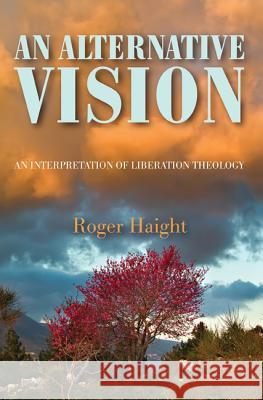An Alternative Vision » książka
An Alternative Vision
ISBN-13: 9781498202312 / Angielski / Miękka / 2014 / 350 str.
An Alternative Vision: An Interpretation of Liberation Theology offers a complete overview of the liberation theology movement that is ideally suited for a thorough study of the major questions and important theologians that have contributed to the debate. It outlines and brings together into a single unified account liberation theology's alternate vision for providing the possibility of meaningful historical existence for humans in the world today. The author translates the Christian vision of liberation theologians from Latin America into more general theological and cultural categories familiar to the English-speaking world, then shows how that vision makes a unified interpretation of Christian doctrine. First, liberation theology must be seen as a response to massive human suffering witnessed throughout the world today. This human agony is largely caused by human beings and the social and political structures we create, and liberation theology addresses this dilemma using the tradition of Christian wisdom and direct imperatives that have universal, transcultural significance. The second goal is achieved by showing the connection between liberation principles and the major doctrines of Christian belief, including God, Jesus Christ, faith, grace, the church, sacraments, ministry, and spirituality. Roger Haight, SJ, is a professor of systematic and historical theology at Regis College of the Toronto School of Theology. He received a doctorate in theology from the University of Chicago in 1973. Before going to Toronto, he taught at Loyola School of Theology in Manila and the Jesuit School of Theology in Chicago and served as a visiting professor in India and Latin America. His other books include The Experience and Language of Grace (1979) and The Dynamics of Theology (1990).
An Alternative Vision: An Interpretation of Liberation Theology offers a complete overview of the liberation theology movement that is ideally suited for a thorough study of the major questions and important theologians that have contributed to the debate. It outlines and brings together into a single unified account liberation theologys alternate vision for providing the possibility of meaningful historical existence for humans in the world today.The author translates the Christian vision of liberation theologians from Latin America into more general theological and cultural categories familiar to the English-speaking world, then shows how that vision makes a unified interpretation of Christian doctrine. First, liberation theology must be seen as a response to massive human suffering witnessed throughout the world today. This human agony is largely caused by human beings and the social and political structures we create, and liberation theology addresses this dilemma using the tradition of Christian wisdom and direct imperatives that have universal, transcultural significance.The second goal is achieved by showing the connection between liberation principles and the major doctrines of Christian belief, including God, Jesus Christ, faith, grace, the church, sacraments, ministry, and spirituality.Roger Haight, SJ, is a professor of systematic and historical theology at Regis College of the Toronto School of Theology. He received a doctorate in theology from the University of Chicago in 1973. Before going to Toronto, he taught at Loyola School of Theology in Manila and the Jesuit School of Theology in Chicago and served as a visiting professor in India and Latin America. His other books include The Experience and Language of Grace (1979) and The Dynamics of Theology (1990).











